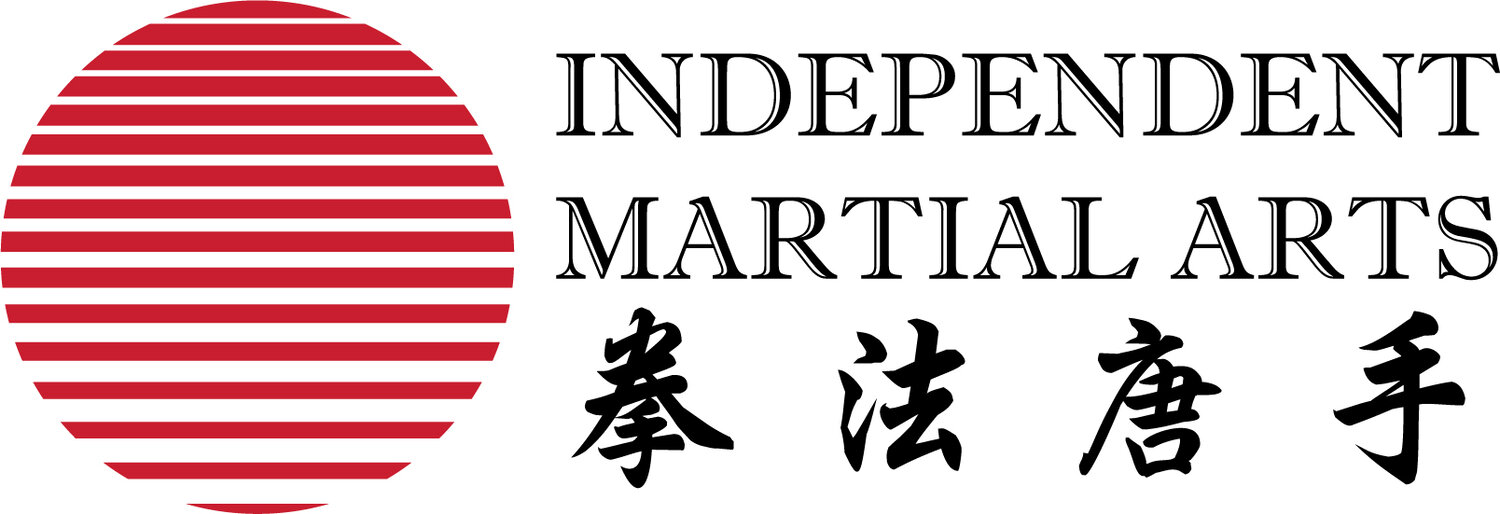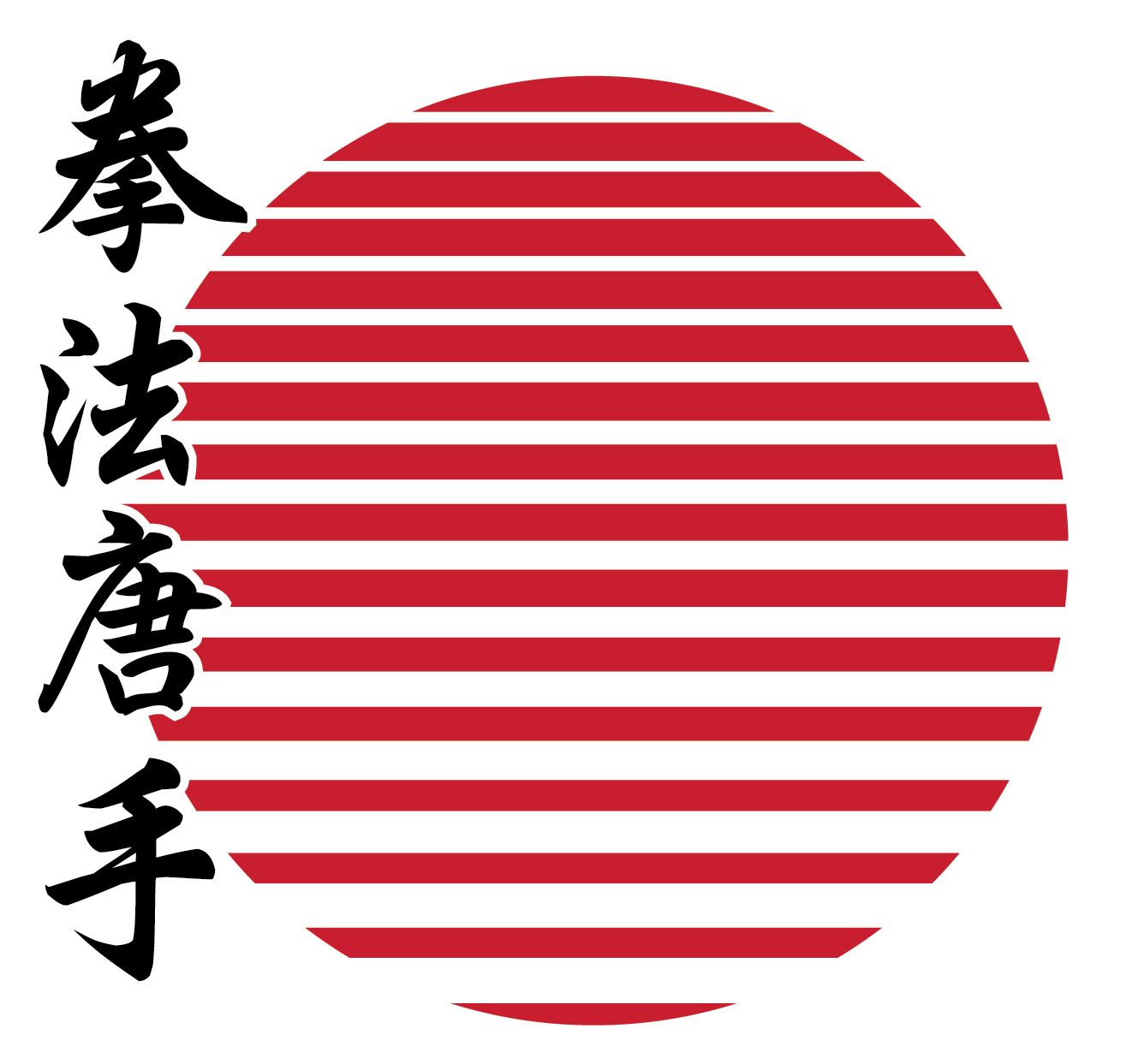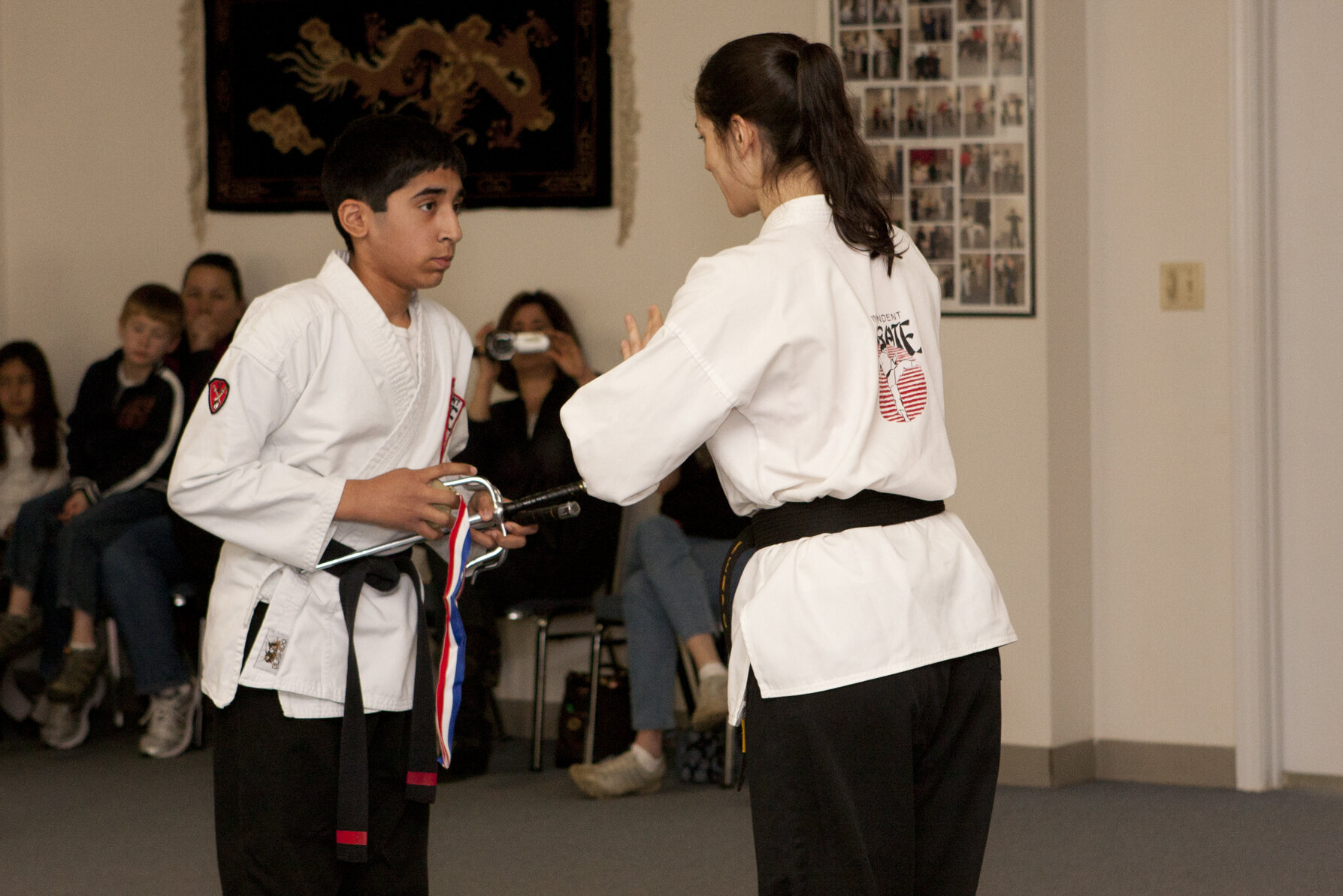Courtesy: Rituals of Respect
Watch a bout of any combat sport—boxing, kickboxing, mixed martial arts, point karate, Brazilian jiu jitsu, judo, wrestling, fencing, etc.—and you will be in for a truly strange spectacle. You will see the two athletes shake hands, touch gloves, bow, or otherwise engage in some ritualized display of respect; they will then try with all their might to punch, kick, strangle, pin, or stab each other; finally, battered and exhausted, they will collapse in each other’s arms in a weary embrace. Something strange is going on here: a punch in the face and a hug generally don’t go together in everyday life.
In a less extreme way, we mirror this bizarre irony at the Independent Martial Arts School. Before we pair off with a partner to practice a technique or spar, we bow to them in respect. We observe other seemingly arbitrary points of etiquette as well: we bow when we enter the dojo, we call our instructors “sir” and “ma’am,” and we cringe at the sight of a belt touching the floor. What possible purpose could these strange rituals serve?
By way of an answer, I share a quote from one of our “past three grandmasters”, Dr. Jigoro Kano, founder of the Japanese grappling art of Judo: “Before and after practicing Judo or engaging in a match, opponents bow to each other. Bowing is an expression of gratitude and respect. In effect, you are thanking your opponent for giving you the opportunity to improve your technique.”
Kano’s fundamental point is that, while each of us is trying to beat the other when we compete, we are both improving in our understanding of the art. The art is the fundamental thing, and when we show respect for our partner, we are really showing respect for the art that we both love.
Our other rituals of respect follow the same logic. When we bow before entering the dojo, we show respect for the location specifically dedicated to our growth in the art. When we call our instructors “sir” or “ma’am,” we show respect for the person guiding us along our journey in the art. When we keep our belts from touching the ground, we show respect for the symbol of our progress in the art.
These little displays of respect conspire to reinforce over and over again the same vitally important message: what we learn here is not something to be taken lightly. It is, as we remind you over and over again in class, a treasure — even if we normally keep that treasure in our pockets.
If you take the art of karate seriously, if you put in the time and show it the proper respect, it will teach you more lessons than you could possibly imagine. It will add a depth to your life that you would be hard pressed to find elsewhere. Karate is a long and winding journey, with peaks and valleys, roadblocks and fast lanes, and unexpected twists and turns. It will frustrate and excite you, humble and elevate you, and ultimately teach you valuable lessons about yourself, whether you want to hear them or not. It is not an easy road, but it is one that you will not regret taking.
There is a price of admission, however, to enter into this journey. In order to learn all these lessons, you cannot treat the art with flippancy. Life is busy, and we understand that our students cannot make karate a full time preoccupation; even if you could, we wouldn’t want you to make it a full time preoccupation. When you are in the dojo, however often that is practical for you, we ask that you take our rituals of respect seriously. We instructors take no egotistical pleasure in reminding you to bow when you enter the dojo, or to call us “sir” or “ma’am.” These signs of courtesy are not ultimately for us. They are for you. They are signs that you have accepted an invitation to a certain way of life; a way few others will understand, and even fewer will participate in. They are the prerequisite to enter into a deeper, truer, more complete form of self-understanding. So for your own sake, bow proudly when you enter the dojo, look your instructors in the eye and call them “sir” or “ma’am,” and keep your belt off the floor even when no one is looking. In other words, don’t forget the importance of courtesy.
As Sensei Pete always taught us, when you show respect and courtesy to others, you are truly respecting yourself.
Written by Timothy Philbin


